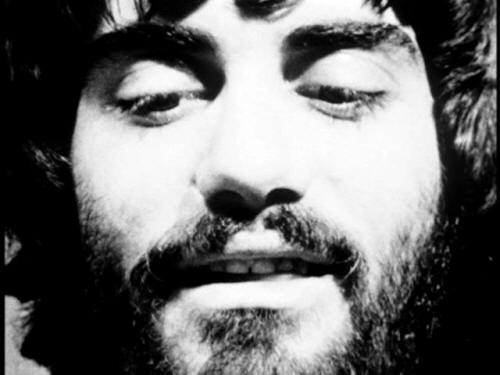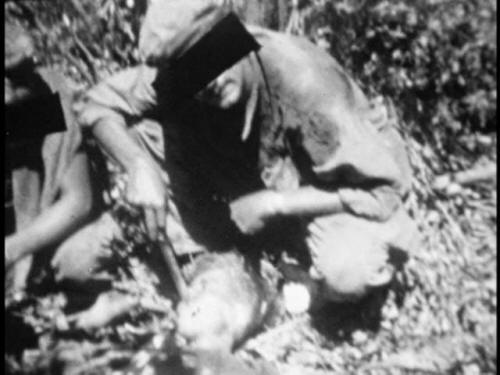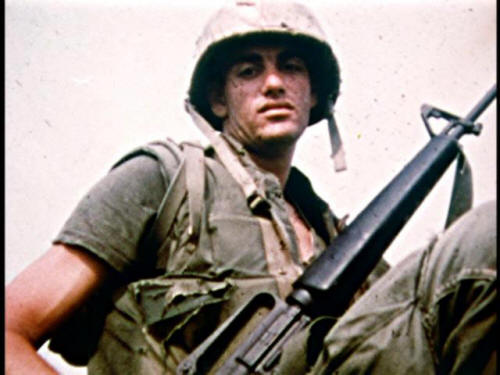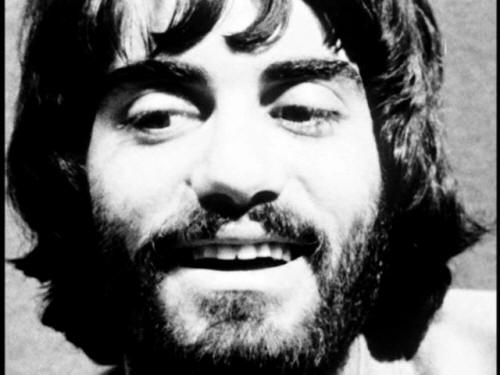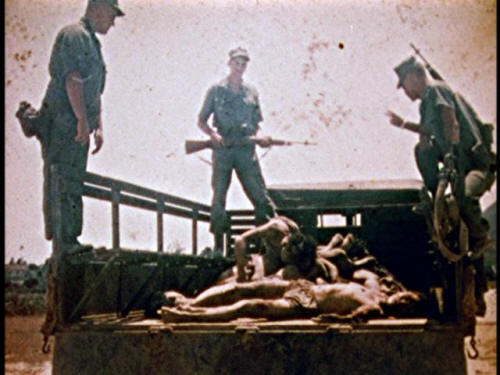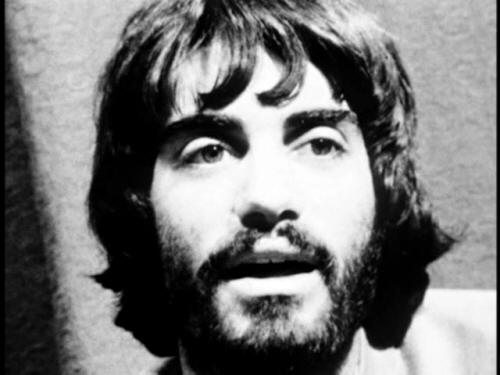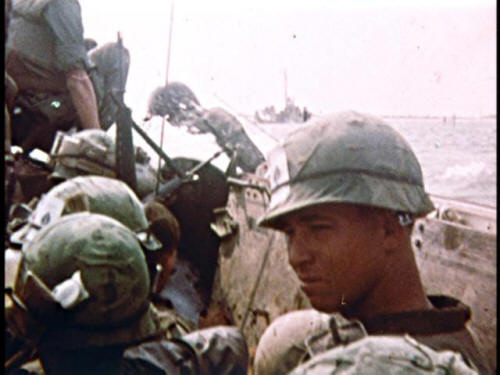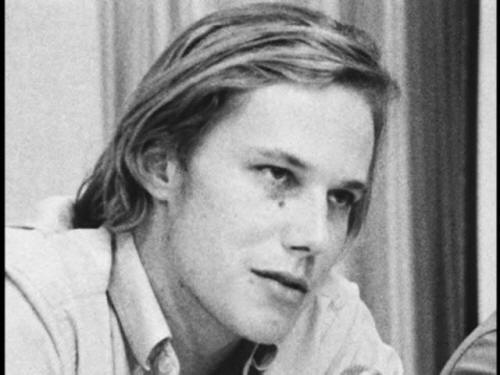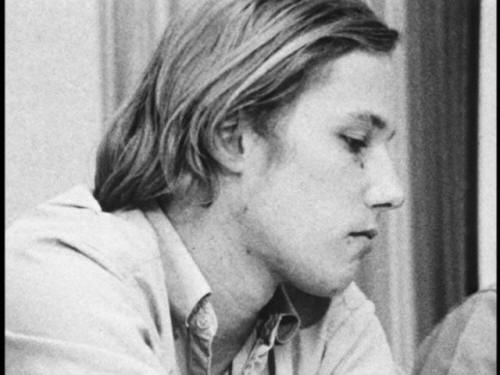|
Home WINTER SOLDIER -- ILLUSTRATED SCREENPLAY & SCREENCAP GALLERY |
|
It got to be like a game. Like the object was to see who could kill the most people. And the different ways you could prove how many people you killed would be like cutting off ears. If you brought back someone's ears, you know, it's pretty likely you had to kill him to get them. And then whoever had the most ears, they would get the most beers, and you'd trade your ears for beers. And it got to be like a game. And when it came time to go home, like I was very close to my friends and I got to where I knew what I was doing, you know, like I was an expert. And my job, being a forward observer, is also a scout sergeant and you have to learn to read maps and know the area. And I got to where I knew where I was without looking at the maps, and I could call in artillery just by knowing where I was. And I was really attached to my friends. And I couldn't see leaving my friends and going home. And then I thought about the political thing again, and I said well, and I wrote my mother a letter and I told her, I said I'm not coming home in April because I really believe what we're doing is right and I think it's better for me to stay here and help get it cleaned up if I can than for my brother to have to come over when he gets old enough, and that's what I wrote, and that's what was put in the newspaper, and they had a big article, "You know, we need more Americans like this." Q. What was your rank when you first went over? SCOTT CAMILE: A PFC. Q. And when you left? SCOTT CAMILE: A sergeant. I made a corporal and a sergeant. I made very good rank. Q. So the army thought you were a very good soldier? SCOTT CAMILE: I got a good conduct medal, too and I got the Vietnamese cross of gallantry with silver star and got put up for the bronze star three times. And this is something else I'd really like to rap about. Medals. You know. Medals are a bunch of shit. Every time I thought I deserved one, no one ever said anything. And when I didn't think I deserved some, I got one, you know. And it was like, one time I picked up a grenade that was thrown at us and I threw it back, and they thought I was really brave. But it was because that was the easiest thing to do. Like, I wasn't going to fall on it and save anybody's life because I wasn't that brave, or stupid, or whatever, and you can't stand there and look at it, and you can't run from it because you can't get away from it. And the only chance I figured I had was to pick it up and throw it away. And they thought I was doing something brave, and I got put up for a medal, but I was doing the most cowardly thing. And another time I got a medal, these gooks came out in front of us and I was with the infantry. But the infantry had to work together. I couldn't move on my own because I was a forward observer. So we were eating, we didn't have our boots or clothes on, just our pants, and I slipped into my boots and I grabbed my ammo, and my rifle, and I didn't get on my helmet or flak jacket or anything, I went after them, and I got five of them. So I got a medal for it. But I was running after them, I was chasing them. They never stopped and turned around and fired at me. I didn't risk my life for anything. And they thought it was really brave, and they yelled at me for going out there and doing that because a forward observer's not supposed to give away his position, but it was really fun. It wasn't anything brave at all. You know, I got five commies. Man, wow, now I'm really happy. Wait till my parents hear this. Then that night we were on a scorpion, that's where four or five guys go out and they just hide, and when the enemy come by you open fire and then you run, you know. And they don't know how many of you there are. So usually they pull back too. And two of them came walking right by us, and three of the guys were asleep. And I didn't want to shoot because I didn't want to give away my position, so I grabbed the guy in front of me around the mouth, and I stabbed him in the kidney, and I killed him. And the guy next to me, he opened fire at his and he missed. So for getting those six kills, I got the medal. Another time I had a friend who got killed, and I was very upset, and I asked this Vietnamese for his I.D. card. And he said "kombiek?," and that means "I don't understand" in Vietnamese. And it just pissed me off. So I pulled out my knife and I killed him. And it didn't bother me at all. I just called in and said, "One VC killed." And they said, "How do you know he's a VC?" And I said, "because he's dead. And they laughed and said okay. I'd come in and people would ask me what's going on out in the front and I would tell them, and they'd keep it ____, for how many kills you have, and I'd come in and they'd show me how many I have. And what it is, every time you kill someone, you have to report it. And you have to search them for papers and stuff. But this is something else: body count. If ten of us would go out, and I'd come back with only five men, we lost half our men and you couldn't say that you didn't see any enemy. So you could have killed only one enemy, and by the time it would get up to the high command, you know, you killed 50 of them cause they couldn't say they lost five men taking one. So the body count's a bunch of shit. You know, what they say and what they get is different things. Like you read in the newspaper on Operation Medina 200 of us went out, and about 47 of us made it back. And they just ambushed us and wiped the hell out of us. And I didn't see any gooks, man. They were sitting in trees dropping grenades on us, and they had machine guns on the front and on the side. And the newspaper said we had all of these kills, you know. I didn't know what the hell they were talking about. I never saw any kills. But they just didn't want to admit that all those men got killed for nothing. Q. Do you think that was a justifiable thing? You knew it was a lie, but did you see a reason for it at the time? SCOTT CAMILE: I didn't question it. I figured well, if the people at home think we're killing them, you know, that's great, because that's what we're supposed to be doing. And another thing is the competition between units. Besides competition between men to kill the most, there is competition between squads and between companies, and between battalions to see who can kill the most. So if the newspaper said Charlie company got 200 kills and we didn't get any, we weren't going to say anything. We wanted them to think "We're bad guys, man." And we thought we were so tough we went around with aces of spades in our helmets. And every time we'd kill someone, we'd put it in their face so if anyone else came, they knew that Charlie company did it, you know. SCOTT MOORE: Vietnam was not a land war. If you gain land, as in other wars, your efficiency report would go up. In this war it's based on body count. The more people you kill, the better efficiency report, officer efficiency report you get. So what happened here is a case of the colonels going into competition and making up more bodies than they really have. And this was, of course, passed down to the company commanders, platoon leaders and the squad leaders. So hell, we were reporting water buffalo, in some cases shadows, I remember one time I called artillery into a woodline where I received sniper fire, and didn't check the woodline and called in three body count. This went on all the time. In other fire fights, the count would be 80, 90, and personally I only saw two, three bodies. So it's a totally inflated system and what's happened is the American public has been lied to. The army has come out and stated that we've got a kill ratio of 1 to 13, and yes it's one to 13 because of this inflation, but it's a lot of bull. |
